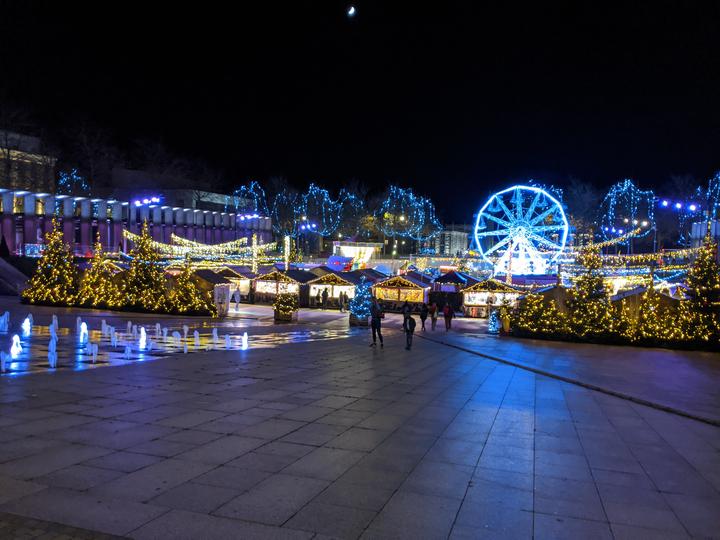Second research stay at ENSTA Bretagne, Brest, France
 Christmas Market in Brest
Christmas Market in Brest
My first research stay in Brest turned out to be a great success and I was able to establish a good connection with Prof. Luc Jaulin as well as the other robotics researchers at ENSTA Bretagne. Thus, I asked Luc to become the second rapporteur of my PhD thesis. After he agreed and my thesis was almost complete, I decided to visit Brest for a second time to discuss possible improvements of my thesis with Luc.
I arrived in Brest on Nov 24, 2019 and was greeted by many familiar faces. Again I was offered to sit next to Luc in his office, which I gladly accepted. I had prepared some more questions regarding my research and the notation commonly used in the interval analysis community. In addition, Luc had taken the time to read my thesis and gave great suggestions for possible improvements.
Besides working on my thesis, I also discussed with Prof. Simon Rohou whom I had already met during my first stay in Brest and who recently became an assistant professor at ENSTA Bretagne. He introduced me to his C++ library Tubex, which provides tools for constraint programming over reals and trajectories. The idea of constraint programming is to provide a set of constraints (e.g. measurements and the corresponding measurement functions) and then let a solver find the set of all solutions (e.g. the robot’s pose) that are consistent with these constraints. I had already started to use the constraint programming technique during my own research, and thus I was pleased to learn even more about it from Simon.
Moreover, Simon invited me to co-organize a tutorial on constraint programming for robotics with him. This tutorial was first proposed for the IEEE International Conference on Robotics and Automation (ICRA) 2020 and aims to introduce fellow robotics researchers to the Tubex library and constraint programming for dynamical systems in general. Lately, we again offered the tutorial to participants of the IEEE/RSJ International Conference on Intelligent Robots and Systems (IROS) 2020. More information on the tutorial can be found here and here.
After having accomplished my goal of improving my thesis based on Luc’s comments and having learned a lot more about interval analysis and constraint programming, I left Brest after two weeks and went home to Hannover to finish my thesis before submitting it shortly after.